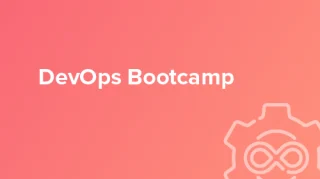A Guide to Software Engineering Bootcamps: Developing Software for the World
In today’s fast-paced digital world, software engineering has become an indispensable skill. From web applications to mobile apps, from artificial intelligence to blockchain, software engineers play a crucial role in shaping the technology landscape. As demand for software engineers continues to grow, so does the need for effective training programs that can quickly prepare aspiring engineers for the job market. One such approach gaining popularity is software engineering bootcamps. In this article, we will explore what software engineering bootcamps are, how they work, and why they are becoming a preferred choice for many individuals looking to kickstart their careers in the software development industry.
Software engineering bootcamps are intensive, short-term training programs that aim to teach participants the skills required to become software engineers. These programs are designed to be immersive and hands-on, focusing on practical application rather than theory. Bootcamps are typically shorter in duration compared to traditional computer science degrees, usually ranging from 8 to 16 weeks, with full-time or part-time options available. They are known for their fast-paced and immersive nature, providing a concentrated and accelerated learning experience.
The curriculum of a typical software engineering bootcamp covers a wide range of topics, including programming languages, web development frameworks, databases, version control, software testing, and project management. Some bootcamps also offer specialized tracks such as data science, machine learning, or cybersecurity to cater to specific interests and career goals of participants. The curriculum is usually designed in collaboration with industry experts and is updated regularly to keep up with the ever-evolving technology landscape.
One of the key features of software engineering bootcamps is the emphasis on practical learning. Participants work on real-world projects, individually or in teams, to apply the skills they learn during the program. This allows them to build a portfolio of projects that demonstrate their abilities to potential employers. Bootcamps also provide opportunities for networking and career support, including job placement assistance, resume review, mock interviews, and alumni networks. Many bootcamps also bring in guest speakers from the industry to share their insights and provide mentorship to participants.
One of the advantages of software engineering bootcamps is the accessibility they offer. Unlike traditional computer science degrees that require several years of study and often come with hefty tuition fees, bootcamps are more affordable and time-efficient. Participants can quickly acquire the skills they need to enter the job market and start their careers as software engineers. Bootcamps are also flexible in terms of scheduling, with full-time and part-time options available, making them suitable for individuals who want to learn while working or have other commitments.
Another reason why software engineering bootcamps are gaining popularity is the demand for skilled software engineers in the job market. As per the U.S. Bureau of Labor Statistics, employment of software developers is considered to grow 22 percent from 2019 to 2029, which is much faster than the average for all occupations. This high demand, coupled with the relatively short duration of bootcamps, makes them an attractive option for individuals looking to switch careers or upgrade their skills to meet the market demand.
However, it’s important to note that bootcamps are not for everyone. They are intensive and require a high level of dedication and commitment. Participants need to be prepared to put in long hours, often working on projects outside of regular class time, and be willing to learn at a fast pace. While bootcamps provide a solid foundation in software engineering, they may not cover all the depth and breadth of computer science concepts that a traditional degree program would offer. Additionally, the job market for software engineers can be competitive, and having a bootcamp on your resume may not be enough to secure a job on its own.









